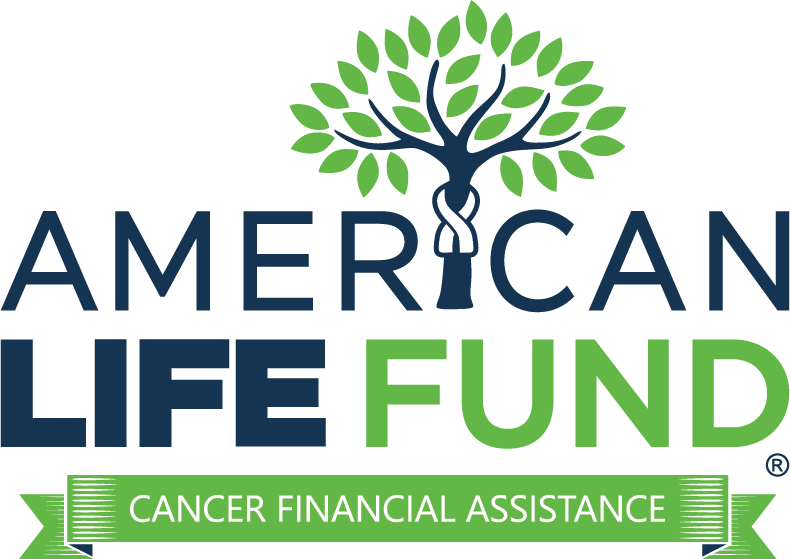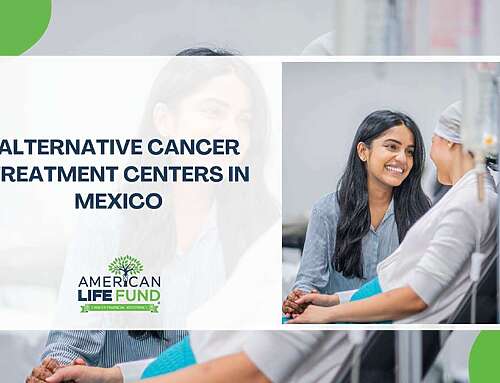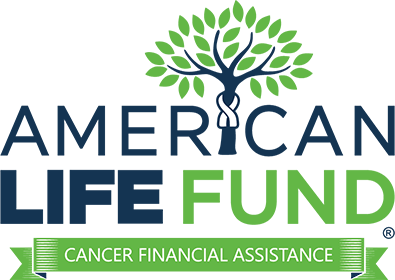A terminal cancer diagnosis brings not only emotional and physical challenges but also significant financial hardship. From medical bills and treatment costs to daily living expenses, many cancer patients and their families face difficult decisions as they go through this experience.
Fortunately, a variety of resources exist to provide financial assistance and support during this time. Whether through nonprofit organizations, government programs, or alternative solutions like viatical settlements, help is available to ease the strain.
In this guide, we will discuss options to help cover medical bills, transportation costs, housing, and other expenses, ensuring you and your loved ones can focus on what matters most. We’ll also explain how viatical settlements, offered by American Life Fund, can provide a way to regain control of your financial situation and make the most of your time with family.
Assistance with Daily Living Expenses
When you’re living with terminal cancer, the everyday costs of life can quickly become overwhelming. Balancing medical bills alongside rent, utilities, and transportation costs feels like an impossible weight some days. But there is support out there.
Housing Assistance
Keeping a roof over your head and the lights on is a top priority, but it’s one of the hardest things to manage when you can’t work like you used to. Programs like Section 8 housing offer relief for low-income individuals, helping with rent or mortgage payments. Some local nonprofit organizations, such as United Way, can also step in to help with utility bills when money is tight.
If you’re facing an emergency situation, charities in your area might provide temporary housing assistance. Reaching out to a local health department or a social worker can connect you with these resources, sometimes quicker than you’d expect.
Transportation Support
Getting to treatment is non-negotiable, but the costs can stack up fast. Gas, parking fees, and even the wear-and-tear on your car feel like a never-ending expense. Thankfully, organizations like the American Cancer Society offer programs like Road to Recovery, where volunteers provide free rides to treatment centers.
If driving isn’t an option, some local resources offer gas cards or reimburse transportation costs to help ease the burden. Parking assistance programs at hospitals and clinics can also be a lifesaver, especially during active treatment when you’re making frequent trips.
Help for Medical Expenses and Treatment Costs
Cancer treatment comes with a price tag that’s hard to wrap your head around. From co-payments to unexpected medical supplies, the costs can feel like they’re never-ending. When every dollar counts, finding financial support for treatment can make all the difference.
Government Programs
If you’re struggling to afford care, programs like Medicaid and Medicare can help cover medical expenses, prescription costs, and even certain benefits like hospice care. For veterans, the Veterans Administration offers specialized programs that provide assistance with cancer treatment and related services. These programs may not solve everything, but they help take some of the load off.
Nonprofit Organizations
Organizations like the HealthWell Foundation and CancerCare are there, providing financial aid for things like medications, medical bills, and active treatment costs. Many of these nonprofits focus on direct financial assistance, meaning you can use the support where you need it most – whether it’s co-payments, transportation to receive treatment, or medical supplies.
Support from Pharmaceutical Companies
It’s no secret that cancer medications are expensive, especially for those battling breast cancer, colon cancer, or prostate cancer. Thankfully, some pharmaceutical companies offer patient assistance programs to help cover the cost of these life-saving drugs. Your treatment center or social worker can help you find programs you may qualify for.
Charity Care at Medical Centers
If paying for hospital bills feels out of reach, ask about charity care programs. Many hospitals and clinics provide reduced-cost or free care for patients who meet income requirements. It’s not always easy to ask for help, but these programs are designed for people in situations just like ours.
Food and Nutrition Assistance
When you’re focusing on fighting cancer, the last thing you should have to worry about is how to put food on the table. Yet, for many of us, grocery bills add another layer of financial stress. Thankfully, there are resources to help make sure that you and your family can access nutritious meals during this time.
Government Programs
Programs like SNAP (Supplemental Nutrition Assistance Program) are available to help cover the cost of groceries for those with low income. It’s worth checking if you qualify, you can apply through your local health department or online.
Another option is the WIC (Women, Infants, and Children) program, which supports young adults and families by providing food assistance and other health-related services.
Nonprofit Organizations
Organizations like Meals on Wheels deliver prepared meals directly to your home, which can be a lifesaver when you’re too tired or unwell to cook. Many local food banks and pantries also provide free groceries to people diagnosed with cancer, and these services are often just a phone call away.
Specialized Programs
Some treatment centers or nonprofit organizations offer nutrition support programs specifically for cancer patients. These programs provide free or low-cost meal deliveries tailored to your dietary needs during active treatment. Ask your social worker or case manager to help you find local resources that match your needs.
Support for Caregivers
When you’re living with terminal cancer, your caregivers often carry a heavy emotional and financial pressure. Thankfully, there are programs designed to support those who care for you, helping ease their load so they can focus on what matters most: being there for you.
Financial Assistance for Caregivers
Caregiving can be expensive, especially when it involves taking time off work or covering additional living expenses. Programs like the Family Caregiver Alliance offer grants to help with the costs of caregiving, from medical supplies to health insurance premiums.
Respite care programs are another vital resource, giving your caregiver the chance to rest and recharge while ensuring you’re still receiving the care you need. Some nonprofit organizations even provide financial aid for hiring professional caregiving services when family members need additional help.
Practical Support for Caregivers
Caregivers often handle much more than just medical care – they’re running errands, managing household chores, and handling transportation to and from treatment. Thankfully, many social services and nonprofit organizations offer assistance with these daily tasks. Some programs even connect caregivers with volunteers who can lend a hand with grocery shopping, cooking, or yard work.
Emotional Support for Caregivers
It’s easy for caregivers to feel isolated or stressed, but they don’t have to do it alone. Support groups – whether in-person or online, can provide a space to share experiences and learn from others in similar situations. Many organizations, such as the American Cancer Society, offer these groups as part of their broader caregiving resources.
Dental, Internet, and Communication Assistance
When living with terminal cancer, even everyday essentials like dental care or staying connected to loved ones can become difficult to manage. These areas might not seem as urgent as medical bills, but they can significantly impact your quality of life. Thankfully, there are specific programs and organizations that can help.
Affordable Dental Care
Routine dental care often takes a backseat during cancer treatment, especially when finances are tight. Medicaid is a good place to start, as it offers coverage for dental expenses, including emergency procedures, to low-income individuals.
If Medicaid isn’t an option, the Dental Lifeline Network is a nonprofit organization that provides free, comprehensive dental care to people living with serious medical conditions like cancer. Additionally, many community health centers and dental schools offer sliding-scale fees based on income. The National Association of Free and Charitable Clinics can help you locate these clinics near you.
Internet Access
Staying connected to loved ones and accessing important medical information online is essential during cancer treatment. The Affordable Connectivity Program (ACP), a federal initiative, provides discounts on internet service and connected devices for low-income households. Nonprofit organizations like EveryoneOn can also help match you with affordable internet plans based on your income and location.
Local libraries are another helpful resource, offering free internet access and computer use for research, connecting with healthcare providers, or attending virtual support groups.
Phone and Communication Services
Maintaining communication with family and healthcare providers is important. The Lifeline Program, another federal initiative, offers free or discounted phone service to those who qualify. Assurance Wireless is another option, providing free cell phones and monthly plans for eligible individuals.
If virtual medical appointments or support groups are part of your care plan, organizations like the American Cancer Society can help you find the tools and technology to stay connected.
How Viatical Settlements Can Help Cancer Patients
Facing terminal cancer often means facing difficult financial challenges – mounting medical bills, daily living expenses, and the uncertainty of how to pay for it all. Viatical settlements can offer a solution, providing a way to regain control over your finances and focus on what really matters.
What Is a Viatical Settlement?
A viatical settlement allows you to sell your life insurance policy for a lump sum of cash. This cash can be used however you choose, offering flexibility and immediate relief.
Here’s how a viatical settlement can make a difference:
- Cover Medical Bills: Use the funds for hospital bills, treatments, or medications that might not be covered by insurance.
- Pay Daily Living Expenses: Handle mortgage payments, utility bills, or transportation costs without added stress.
- Fund Palliative or Hospice Care: Guarantee you have access to the care you need to stay comfortable.
- Create Lasting Memories: Spend time with family, travel, or fulfill personal goals without financial barriers.
Why Consider a Viatical Settlement?
Unlike other financial assistance programs that have restrictions or eligibility requirements, a viatical settlement gives you:
- Flexibility: Use the funds for whatever is most important to you.
- Speed: Get cash quickly when you need it most.
- Peace of Mind: Focus on your health and family instead of financial worries.
Why Choose American Life Fund?
At American Life Fund, we’ve been helping patients with terminal cancer access the value of their life insurance policies for years. Here’s what sets us apart:
- Compassionate Service: We understand what you’re going through and handle every case with care and confidentiality.
- Quick Process: Our team works efficiently so you can get the funds you need without delays.
- No Hidden Costs: There are no upfront fees or surprises – just straightforward, personalized support.
If you’re ready to find out if a viatical settlement is the right choice for you, we are here to help. This option can provide the financial help you need to focus on your loved ones, your health, and your peace of mind.
Moving Forward with Support
Living with terminal cancer is an incredibly heavy weight to carry – physically, emotionally, and financially. But you don’t have to face it alone. From government programs and nonprofit organizations to viatical settlements, there are resources designed to ease the financial burden and help you focus on what truly matters: your health, your family, and your peace of mind.
At American Life Fund, we understand the challenges you’re going through. That’s why we’re here to provide compassionate, personalized support to help you regain control of your finances. By offering viatical settlements, we give you the flexibility to cover medical bills, daily living expenses, or even create cherished memories with your loved ones.
If you’re ready to learn more about how a viatical settlement can help, don’t hesitate to reach out. Our team is here to answer your questions, guide you through the process, and provide the help you need – quickly and confidentially.
Contact American Life Fund today at 877-261-0632 or see if you qualify here. Let us help you focus on what truly matters.
How does Health and Human Services provide support for terminal cancer patients?
The Department of Health and Human Services offers programs like Medicaid and Medicare to help cover medical costs, as well as funding for housing, nutrition, and caregiver support. These resources are designed to ease financial burdens and improve the quality of life for terminal cancer patients and their families.
What types of care do hospice services offer to terminal cancer patients?
Hospice services provide pain management, emotional support, and end-of-life care for terminal cancer patients. They also include in-home nursing care, counseling, and assistance with daily tasks, ensuring comfort and dignity during the final stages of life.
Why should I trust a company with more than a decade of experience in viatical settlements?
A company with more than a decade of experience, like American Life Fund, has the expertise to navigate the complexities of viatical settlements. Their proven track record means they can offer compassionate, reliable, and efficient service, ensuring you get the financial help you need without unnecessary delays or confusion.





